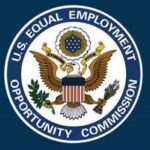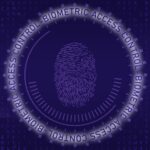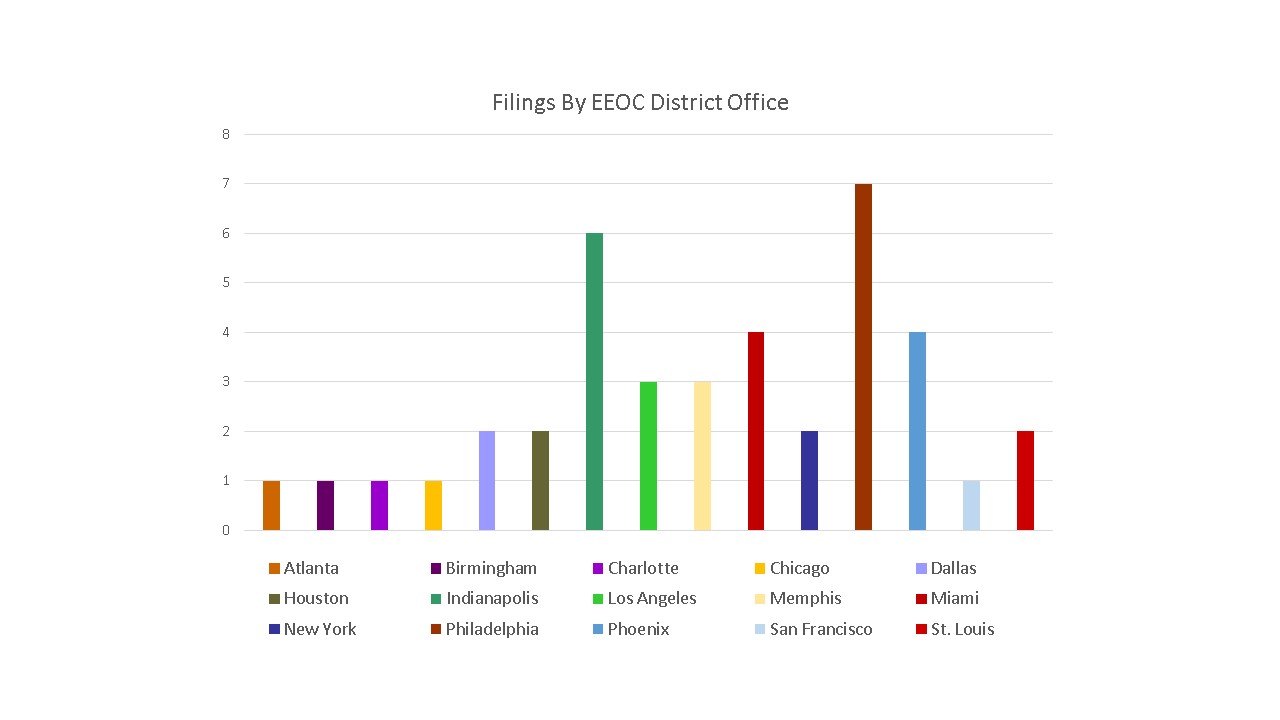 By Alex W. Karasik, Gerald L. Maatman, Jr., and Jennifer A. Riley
By Alex W. Karasik, Gerald L. Maatman, Jr., and Jennifer A. Riley
Duane Morris Takeaways: In one of the most highly anticipated class action rulings in years, in Tims, et al. v. Black Horse Carriers, Inc., Case No. 127801 (Ill. Feb. 2, 2023), the Illinois Supreme Court held that a five-year statute of limitations applies to claims under the Biometric Information Privacy Act, 740 ILCS 14/15 (“the BIPA”). This ruling adds to the risks for employers and companies who do business in Illinois in terms of BIPA class action exposures.
Given that the BIPA statute does not have an explicit statute of limitations, the Illinois Supreme Court’s ruling now provides clarity for litigants and attorneys in this space as to the scope of the putative classes in their lawsuits.
Case Background
In March 2019, Plaintiff filed a class action complaint alleging that Defendant violated the BIPA through its timekeeping practices that involved the scanning and storing of employees’ fingerprints. Plaintiff asserted claims under three sub-sections of the law, including: (1) section 15(a) of the BIPA, for failing to institute, maintain, and adhere to a retention schedule for biometric data; (2) section 15(b) of the BIPA, which states that no private entity may collect, capture, purchase, receive through trade, or otherwise obtain a person’s or a customer’s biometric identifier or biometric information without notice and consent; and (3) section 15(d) of the BIPA, which involves the unlawful disclosure or dissemination of biometric data without first obtaining consent. Of note, section 15(c) of the BIPA prohibit the sale of a person’s biometric data for a profit, and section 15(e) of the BIPA imposes a duty of reasonable care in storing and protecting biometric data from disclosure.
On September 17, 2021, the Illinois Appellate Court held that hat a one-year limitations period pursuant to section 13-201 of the Illinois Code of Civil Procedure (the “Code”) governs actions under sections 15(c) and (d) of the BIPA, while a five-year statute of limitations pursuant to section 13-205 applies to sections 15(a), (b), and (e). The Illinois Appellate Court explained that the BIPA imposes various duties that are separate and distinct from one another. While each of the duties set forth under sections (a)-(e) “concern privacy,” the Appellate Court reasoned that a private entity could violate sections (a), (b), or (e) “without having to allege or prove that the defendant . . . published or disclosed any biometric data.” Tims v. Black Horse Carriers, Inc., 2021 IL App (1st) 200563, at ¶ 31 (1st Dist. Sept. 17, 2021). However, the “publication or disclosure of biometric data is clearly an element of an action under” sections 15(c) and (d). Id. at ¶ 32. Accordingly, the Illinois Appellate Court applied the state’s one-year statute of limitations for right of privacy claims for sections (c) and (d), and applied the five-year “catch all” statute of limitations for sections (a), (b), and (e).
The Illinois Supreme Court’s Decision
On February 2, 2023, the Illinois Supreme Court affirmed in part and reversed in part the Illinois Appellate Court’s decision. First, the Illinois Supreme Court notably opined that it, “agree[d] with the parties that the [A]ppellate [C]ourt erred in applying two different statutes of limitations to the Act.” Tims, 2023 IL 127801, at ¶ 16. It explained that one of the purposes of a limitations period is to reduce uncertainty and create finality and predictability in the administration of justice. Id. at ¶ 20 (citations omitted). The Illinois Supreme Court thus held that, “applying two different limitations periods or timebar standards to different subsections of section 15 of the Act would create an unclear, inconvenient, inconsistent, and potentially unworkable regime as it pertains to the administration of justice for claims under the Act.” Id. at ¶ 21.
Having decided that a singular uniform statute of limitations should apply, the Illinois Supreme Court next analyzed whether the statute of limitations should be five years or one year. Analyzing the plain language of the BIPA statute, the Illinois Supreme Court held that all five subsections of section 15 of the Act prescribe rules to regulate the collection, retention, disclosure, and destruction of biometric identifiers and biometric information. Id. at ¶ 29. In regards to the Illinois Appellate Court’s holding that section 15(a), 15(b), and 15(e) of the Act contained no words that could be defined as involving “publication,” the Illinois Supreme Court held that the Illinois Appellate Court correctly found that subsections (a), (b), and (e) are subject to the five-year “catchall” limitations period codified in section 13-205 of the Code. Id. at ¶ 30.
Turning to subsections (c) and (d), the Illinois Supreme Court acknowledged that the one-year statute of limitations could be applied. Id. at ¶ 32. However, the Illinois Supreme Court held that, “when we consider not just the plain language of section 15 but also the intent of the legislature, the purposes to be achieved by the statute, and the fact that there is no limitations period in the Act, we find that it would be best to apply the five-year catchall limitations period codified in section 13-205. Id. at ¶ 30. The Illinois Supreme Court explained that this outcome would further its goal of ensuring certainty and predictability in the administration of limitations periods that apply to causes of actions under the BIPA. Id. at ¶ 32. In support of its conclusion, the Illinois Supreme Court held that Illinois courts have routinely applied this five-year catchall limitations period to other statutes lacking a specific limitations period, such as the BIPA. Id. at ¶ 34.
Finally, the Illinois Supreme Court examined the Illinois General Assembly’s goals in enacting the BIPA statute. The Illinois Supreme Court opined that in light of the extensive consideration the General Assembly gave to the fears of and risks to the public surrounding the disclosure of highly sensitive biometric information, “it would thwart legislative intent to (1) shorten the amount of time an aggrieved party would have to seek redress for a private entity’s noncompliance with the Act and (2) shorten the amount of time a private entity would be held liable for noncompliance with the Act.” Id. at ¶ 39. The opinion also noted that defamation torts such as libel and slander are subject to a short limitations period because aggrieved individuals are expected to quickly become apprised of the injury and act quickly when their reputation has been publicly compromised, while it would be uncertain as to whether an individual would ever become aware of their biometric being improperly disclosed or misappropriated. Id.
The Illinois Supreme Court concluded its opinion by holding that the five-year limitations period contained in section 13-205 of the Code controls claims under the BIPA. Therefore, the Illinois Supreme Court affirmed in part and reversed in part the judgment of the Appellate Court, and remanded the cause to the Circuit Court for further proceedings.
Implications For Employers
This decision is unsurprising given the public policy behind the law and the growing importance of privacy. The five-year statute of limitations serves to increase BIPA class action litigation exposure.
Companies can expect more BIPA-related rulings in the near term. The Illinois Supreme Court is due to issue its decision in Cothron v. White Castle System, Inc., No. 1280004 (Ill.), which will decide whether each fingerprint scan is its own discrete violation. An adverse finding in Cothron could enhance BIPA class action exposures.
If employers have not already done so, now is time to make sure their timekeeping procedures and consent policies are legally compliant. The Tims ruling is apt to increase the plaintiff class action bar’s appetite for BIPA claims, so it is more important than ever for employers to make sure their procedures are legally sound.





 By: Gerald L. Maatman, Jr., Jennifer A. Riley, and Alex W. Karasik
By: Gerald L. Maatman, Jr., Jennifer A. Riley, and Alex W. Karasik





